Filter by
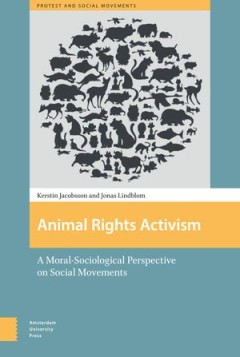
Animal Rights Activism A Moral-Sociological Perspective on Social Movements
We’re in an era of ever increasing attention to animal rights, and activism around the issue is growing more widespread and prominent. In this volume, Kerstin Jacobsson and Jonas Lindblom use the animal rights movement in Sweden to offer the first analysis of social movements through the lens of Emile Durkheim’s sociology of morality. By positing social movements as essentially a moral phen…
- Edition
- -
- ISBN/ISSN
- 9789048525485
- Collation
- -
- Series Title
- -
- Call Number
- -
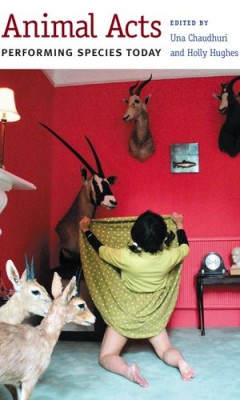
Animal Acts Performing Species Today
We all have an animal story—the pet we loved, the wild animal that captured our childhood imagination, the deer the neighbor hit while driving. While scientific breakthroughs in animal cognition, the effects of global climate change and dwindling animal habitats, and the exploding interdisciplinary field of animal studies have complicated things, such stories remain a part of how we tell the …
- Edition
- -
- ISBN/ISSN
- 9780472901104
- Collation
- -
- Series Title
- -
- Call Number
- -
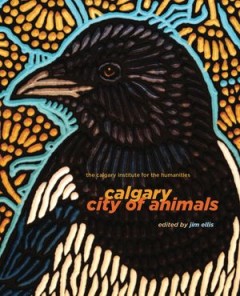
Calgary
How have our interactions with animals shaped Calgary? What can we do to ensure that humans and animals in the city continue to co-exist, and even flourish together? This wide-ranging book explores the ways that animals inhabit our city, our lives and our imaginations. Essays from animal historians, wildlife specialists, artists and writers address key issues such as human-wildlife interactions…
- Edition
- -
- ISBN/ISSN
- 9781552389683
- Collation
- -
- Series Title
- -
- Call Number
- -
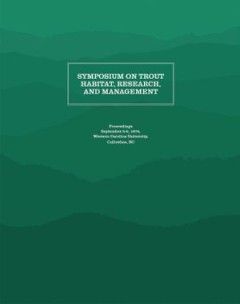
Symposium on Trout Habitat
This publication is the proceedings from a symposium on trout habitat held in 1974 at Western Carolina University in Cullowhee, North Carolina on trout habitat in the Southern Appalachians. Research and management issues were addressed, including challenges to trout habitats such as deforestation, fire, overgrazing, dams, mining, urban and industrial waste, road construction, and poor agricultu…
- Edition
- -
- ISBN/ISSN
- 9781469636511
- Collation
- -
- Series Title
- -
- Call Number
- -
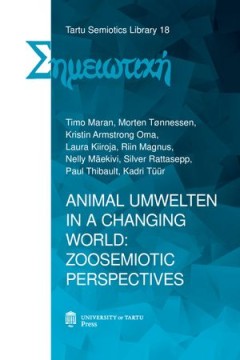
Animal Umwelten in a Changing World
The book raises semiotic questions of human–animal relations: what is the semiotic character of different species, how humans endow animals with meaning, and how animal sign exchange and communication has coped with environmental change. The book takes a zoosemiotic approach and considers different species as being integrated with the environment via their specific umwelt or subjective percep…
- Edition
- -
- ISBN/ISSN
- 9789949772810
- Collation
- -
- Series Title
- -
- Call Number
- -
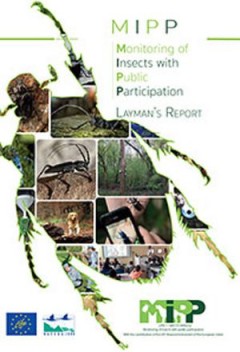
Monitoring of Insects with Public Participation. Layman’s Report
The main objective of the LIFE project Monitoring of Insect with Public Participation (MIPP) is to develop and test methods for the monitoring of five species of beetles listed in Annexes II and IV of the Habitats Directive (Osmoderma eremita, Lucanus cervus, Cerambyx cerdo, Rosalia alpina and Morimus funereus). A second objective of the project is the collection of faunistic data, gathered by …
- Edition
- -
- ISBN/ISSN
- 9789546428844
- Collation
- -
- Series Title
- -
- Call Number
- -
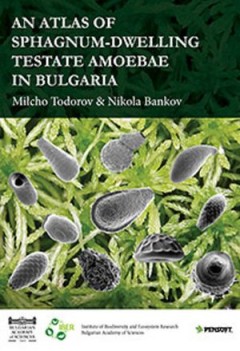
An Atlas of Sphagnum-Dwelling Testate Amoebae in Bulgaria
An Atlas of Sphagnum-Dwelling Testate Amoebae in Bulgaria
- Edition
- -
- ISBN/ISSN
- 9789546429735
- Collation
- -
- Series Title
- -
- Call Number
- -
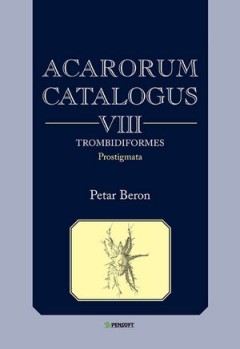
Acarorum Catalogus Viii
The eight volume of this series "Acarorum Catalogus" is devoted to Superfamilia Cheyletoidea (Cheyletidae, Psorergatidae, Demodecidae, Harpyrhynchidae, Syringophilidae) and Superfamilia Cloacaroidea (Cloacaridae, Epimyodicidae). About 1243 species of 177 genera are listed therein, with synonymies and citations in various papers. The book also contains a list of by-country distributions, type lo…
- Edition
- -
- ISBN/ISSN
- 9786192480424
- Collation
- -
- Series Title
- -
- Call Number
- -
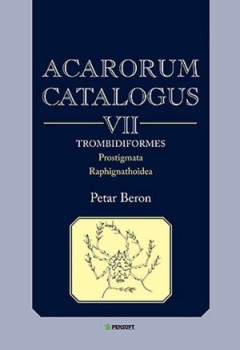
Acarorum Catalogus Viii
The eight volume of this series "Acarorum Catalogus" is devoted to Superfamilia Cheyletoidea (Cheyletidae, Psorergatidae, Demodecidae, Harpyrhynchidae, Syringophilidae) and Superfamilia Cloacaroidea (Cloacaridae, Epimyodicidae). About 1243 species of 177 genera are listed therein, with synonymies and citations in various papers. The book also contains a list of by-country distributions, type lo…
- Edition
- -
- ISBN/ISSN
- 9786192480424
- Collation
- -
- Series Title
- -
- Call Number
- -

Acarorum Catalogus Vii
The 7th volume of my series “Acarorum Catalogus” concerns the mite superfamily Raphignathoidea. The 12 families of this superfamily consist of 69 genera and some 1087 species and are being studied intensely, particularly by acarologists from China, South Africa, Turkey, Iran, Crimea and other countries or areas. Some members of the Raphignathoidea are suitable for biological pest control (G…
- Edition
- -
- ISBN/ISSN
- 9786192480073
- Collation
- -
- Series Title
- -
- Call Number
- -
 Computer Science, Information & General Works
Computer Science, Information & General Works  Philosophy & Psychology
Philosophy & Psychology  Religion
Religion  Social Sciences
Social Sciences  Language
Language  Pure Science
Pure Science  Applied Sciences
Applied Sciences  Art & Recreation
Art & Recreation  Literature
Literature  History & Geography
History & Geography